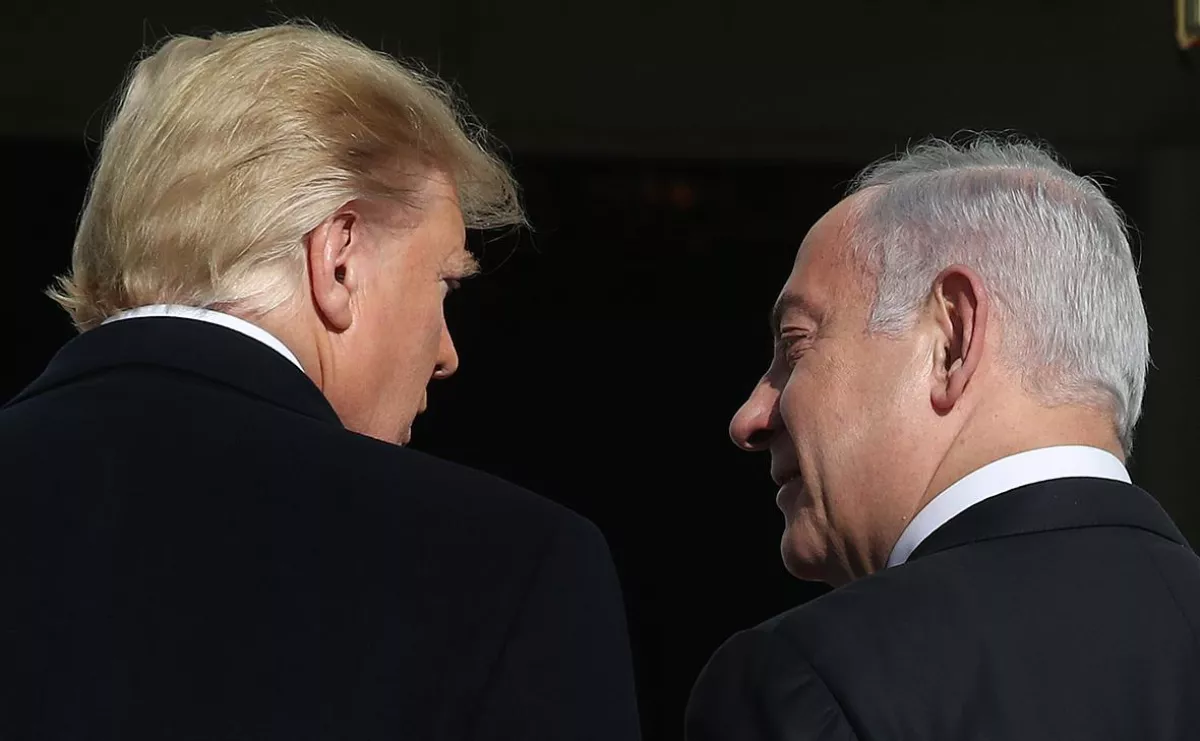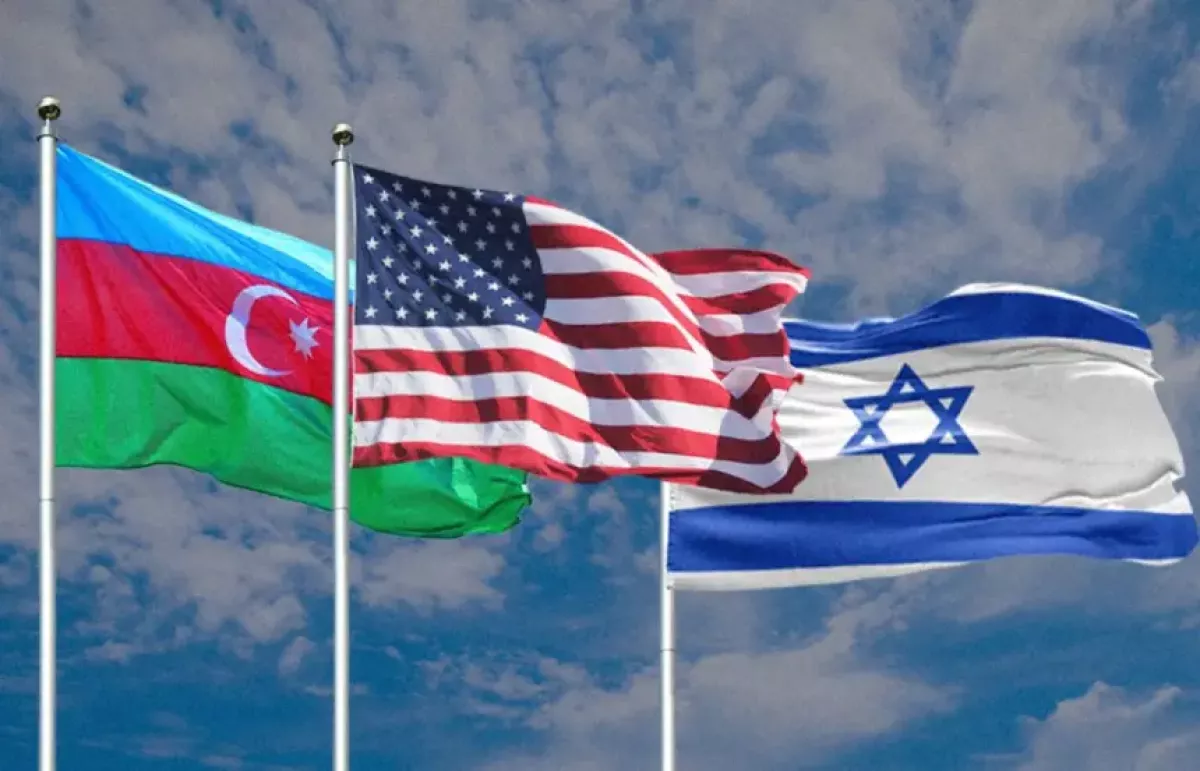Israel, Iran, and the US: On the verge of a nuclear solution The American administration is torn between “hawks” and peace advocates
During a recent visit to Tehran, the Director of the International Atomic Energy Agency (IAEA), Rafael Grossi, effectively acknowledged that Iran is nearing the "nuclear threshold," emphasizing that "we are in a very crucial stage of these important negotiations" and "we know we don’t have much time."

Tehran and Washington have stated their intention to continue diplomatic efforts in search of mutually acceptable solutions for a new nuclear deal, but their positions remain far apart.
Meanwhile, Israel is urging the U.S. to achieve a "formula for permanent nuclear disarmament" of Iran. This involves the destruction of all accumulated highly enriched uranium, providing firm guarantees to halt any activity related to the development of nuclear weapons, and rolling back the ballistic missile program to the extent that it can be adapted for nuclear warheads.

Israel is closely monitoring the dynamics of U.S.-Iran negotiations. Just hours before the start of the second round of talks in Rome, reports emerged indicating that Israel does not rule out the possibility of an attack on Iran's nuclear facilities in the coming months or even weeks—despite President Donald Trump's statements to Prime Minister Benjamin Netanyahu that the U.S. is not currently prepared to support such an action. This information was shared on the morning of April 19 by The Jerusalem Post, citing an Israeli official and two other sources familiar with the situation.
The sources claim that over the past three months, Israel has presented the Trump administration with a number of proposals regarding strikes on Iranian nuclear and other strategic sites, including timeframes for the end of spring and summer.
The plans involve a combination of airstrikes and ground commando operations of varying intensity, which could push Tehran's nuclear program back by several months, possibly a year or more.
Recently, a senior Israeli official acknowledged in a conversation with journalists that there is some urgency if the goal is to strike before Iran strengthens its air defence systems.

U.S. National Security Advisor Michael Waltz and Secretary of State Marco Rubio support military action "to destroy Iran’s potential nuclear weapons capability" and prevent it from acquiring nuclear weapons. This was reported by The Washington Post, citing sources.
Vice President JD Vance and Director of National Intelligence Tulsi Gabbard take a more cautious stance. They warn of the risks of a regional war and the lack of evidence that Iran is genuinely pursuing nuclear weapons.
President Trump, for his part, is weighing the opinions of both sides. He listens to both the "hawks" and those advocating for a more moderate approach within his circle.
Could Israel decide to independently strike Iran if the U.S. refuses to participate in the operation? What events and threats from Iran might push the Israeli leadership toward such a move? Is there still a chance to convince Washington to reconsider?
Foreign analysts shared their assessments of the situation with Caliber.Az.

Israeli political scientist, Professor Zeev Hanin of Bar-Ilan University, considers the scenario in which Israel would independently strike Iran to be highly unlikely.
"Unless a situation arises that could resemble the peak of the Yom Kippur War. At that time, Golda Meir made a statement implying that if Israel were faced with an existential threat—meaning the threat of its own destruction—it would take all necessary actions, including using what Israel officially does not possess. Or, at least, what we call 'nuclear ambiguity,' meaning nuclear uncertainty.
Israel's traditional doctrine, as we know, is based on the idea that Israel will never use nuclear weapons (if it possesses them) first in the Middle East. This is the official doctrine, and there is no other in Israel. One can take this seriously, as Israel has traditionally acted as a responsible player in the international system.
The same cannot be said about Iran. The rationality of Tehran's ultra-religious radical Islamist leaders is highly questionable," the professor noted.
However, leaving this hypothetical situation aside, it is unlikely that Israel would take such a step without U.S. support, he added.
"There is also a technical problem—air refuelling is required, as well as coverage from the U.S. Central Command in the Middle East: the fleet, aviation, air defence systems, etc.
This is necessary in case something goes wrong. It should be noted that the outgoing commander of the U.S. Central Command, whose area of responsibility now includes Israel, was a strong proponent of a joint, coordinated U.S.-Israeli strike on Iran’s nuclear facilities.
However, it is unclear what line his successor, who will take over in a few months, will take. Meanwhile, a debate is ongoing within the U.S. administration between advocates of diplomatic and military solutions. Ultimately, at this stage, Trump decided to primarily try the diplomatic process," Hanin explained.
In this situation, Israel has two things left to do, he said.
"First, Israel needs to engage in a dialogue with the U.S. about what to do if the negotiation process fails or if the ayatollahs refuse to comply with American demands and any compromises that are offered. The second issue is discussing at this stage the possibility that, if the Americans propose a particular model of a diplomatic solution to prevent Iran from becoming a nuclear power, Israel's position will be taken into account.
Thus, it is much more likely that the dialogue between Jerusalem and Washington will focus on what parameters of this nuclear agreement would satisfy the Western world, primarily the U.S. and Israel, as well as American allies in the Middle East, including the Arab countries of the Saudi bloc.

Azerbaijan, I believe, is also among them. We know that it is one of Israel's close partners and is strengthening its relations with the U.S. under the new administration. This is the current situation. But, as is well known, the situation in the Middle East, and not only here, changes quite rapidly.
For now, at this stage, the U.S. carte blanche on Iran is not on the table in the Israeli Prime Minister’s office. There is no open check in this regard. How events will unfold further, we will find out in the very near future," Hanin concluded.

Russian orientalist and Middle East expert Ruslan Suleymanov confirmed that the threat to Iran from Israel and the U.S. remains.
"The option of striking, including hitting nuclear facilities, has not gone away. But over the past few months, we have seen Trump's desire to negotiate with Tehran, because a war with the Islamic Republic could lead to unpredictable consequences.
Iran is not Iraq. In terms of both size and population, it is a huge country, one of the largest in the Middle East. Efforts are still being made to reach a deal with Iran, although Netanyahu's cabinet would indeed be very interested in escalation.
This would divert attention from other issues, such as the situation in Gaza, at the very least.
This would indeed strengthen his position, because, as is well known, there is widespread discontent with the current government in Israel, and there are calls for early elections," the orientalist noted.
According to him, Netanyahu understands that without any concrete results in the Gaza sector, his political career is at risk.
"A new war with Iran would, of course, boost his ratings. But for now, Trump is choosing between war and peace, between war and negotiations — and so far, it's negotiations. The fact that two rounds of talks have already taken place in Oman is a significant achievement. I believe these negotiations will continue, and that in itself is already a serious result, because just a couple of weeks ago, Iran was preparing for war," Suleymanov concluded.








